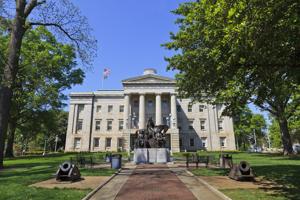North Carolina lawmakers to deliberate over pharmacy benefit managers regulations

(The Center Square) – The North Carolina General Assembly will negotiate the details of a bill that increases consumer protections in the health care industry.
Senate Bill 257 increases state regulation of pharmacy benefit managers.
Pharmacy benefit managers are subcontractors that often dictate how much a pharmacy can charge a customer for prescription medications. Health insurance companies and Medicaid pay pharmacy benefit managers to negotiate prices with drug manufacturers on their behalf and maintain medication lists.
The Senate unanimously approved their version of the measure June 1. The House added provisions to the measure that senators said they needed to review. The House approved the measure, 101-0, on Wednesday.
Both chambers of the General Assembly have appointed members to conference committees to review the bill.
“This bill has a lot of really good things in it,” Rep. Gale Adcock, D-Wake, said. “It’s got a few things that are confusing and are problematic.”
The House added various new rules for pharmacy benefit management networks. Pharmacy benefit managers and health benefit plans that authorize coverage for a drug also would be required to authorize coverage for any biosimilar product under the House version.
According to the U.S. Food and Drug Administration, a biosimilar is a biological product that is “highly similar” to and is not clinically different from an existing FDA-approved product.
Both versions of the bill require pharmacy benefit managers to get a license to do business.
The initial application fee for a license would be $2,000, and annual renewal fees would be $1,500. The North Carolina Department of Insurance would be administering the licensing process.
The department has 32 pharmacy benefits managers as third-party administrators that pay $300 a year to do business in the state, according to fiscal analysts. Using the current number of pharmacy benefits managers, fiscal analysts estimate North Carolina could collect $64,000 the first year the bill becomes law and $48,000 each following year.
Both versions of SB 257 block surprise fees and allow pharmacies to refuse to fill prescriptions if they believe the prescription is not in the patient’s best interest or if there is a question about the validity of the prescription. The legislation bans pharmacy benefit managers from preventing pharmacies from dispensing any drug and from retaliating against pharmacies.
Both versions allow the insurance commissioner to petition a court to order pharmacy benefit managers to pay restitution to pharmacies if they violate certain policies. They also stop pharmacy benefit managers from discriminating against health care providers or pharmacies that use the federal 340B Drug Pricing Program.
According to fiscal analysts, “the 340B drug discount program requires drug manufacturers to enter into a pricing agreement for certain drugs with the federal Department of Health and Human Resources in exchange for Medicaid and Medicare Part B covering those drugs.”
Disclaimer: This content is distributed by The Center Square

